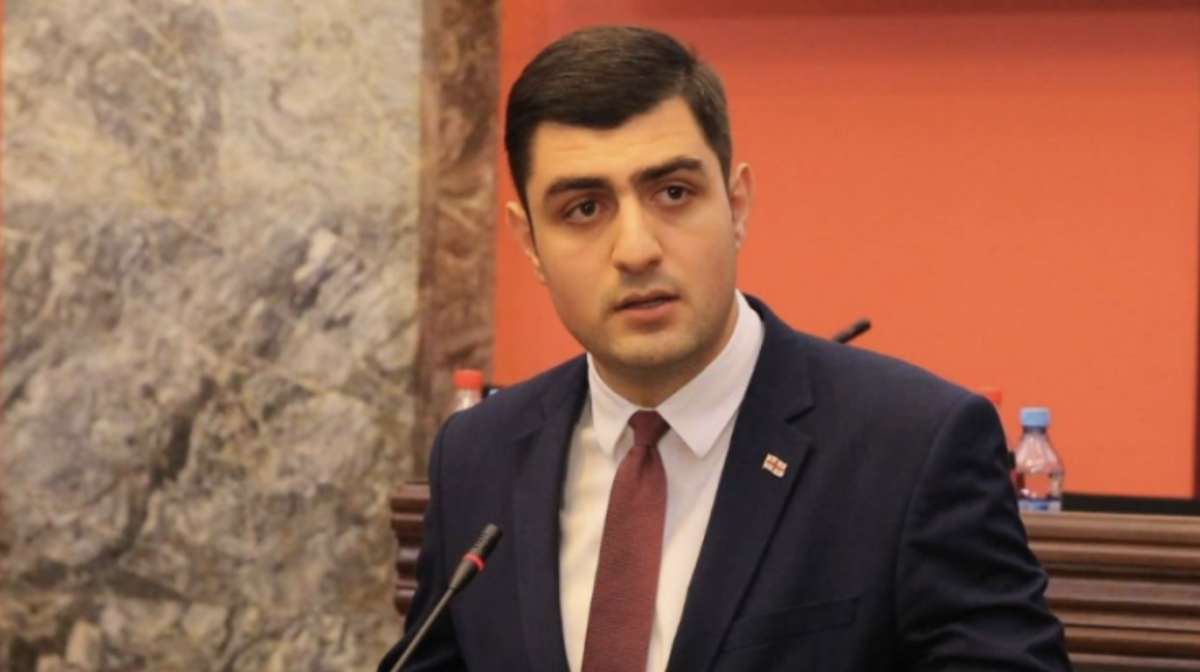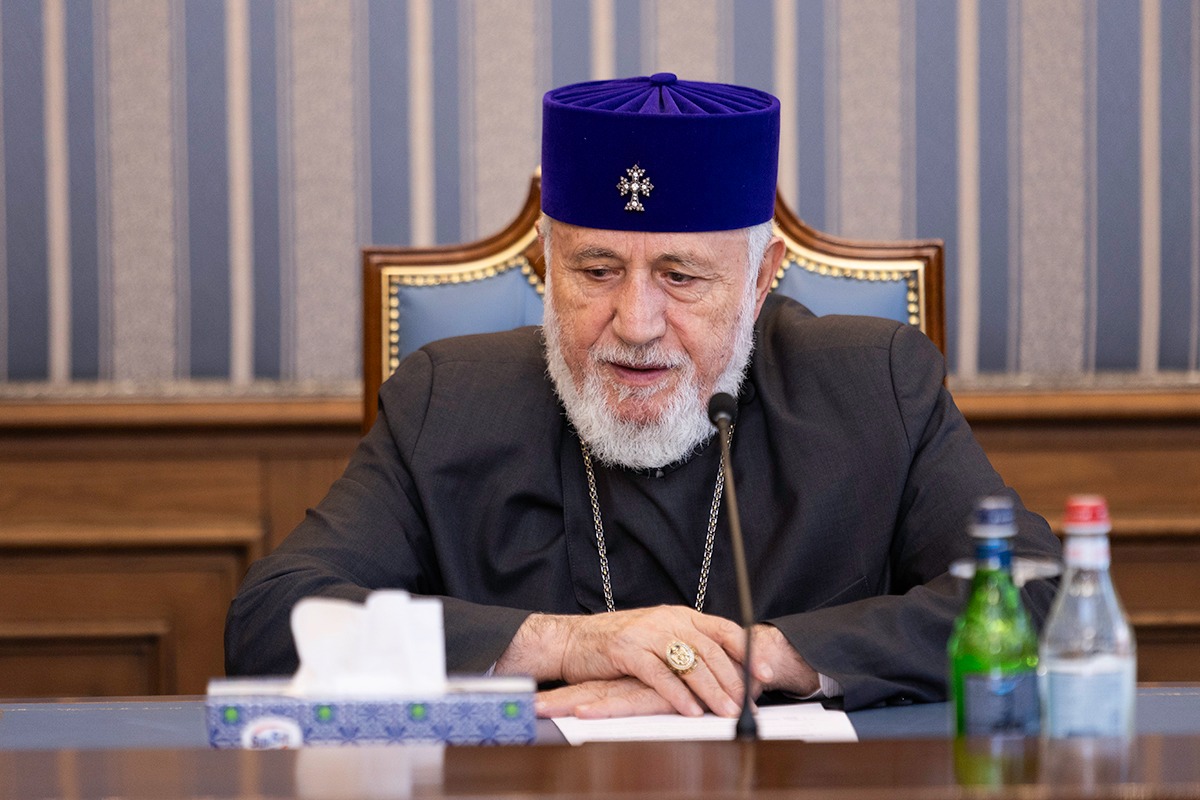One in ten Georgian citizens has no money for food - NDI survey
NDI study on Georgia
According to a new study by the National Democratic Institute (NDI), every tenth citizen of Georgia does not have enough money for food, and every fourth spends money only on food. In addition, every fourth resident of settlements where national minorities live does not have enough money to buy food. The organization notes that compared to others, residents of Tbilisi can afford food, clothes and more expensive things.
The research was conducted by personal interview method. The work was conducted from October 14 to November 4, 2023 and includes 2,068 completed interviews (28 percent response rate). The average margin of error is +/- 2.2 percent (margin of error depends on the response). Interviews were conducted in Georgian, Azeri, Armenian and Russian.
According to the survey, rising prices and inflation is the most important national problem for 37 percent of respondents, which worries them and their families. Jobs are the most important for 35 percent, and poverty is the most important for 28 percent.
To the question which of the listed national problems are the most important for you and your family (possibility to choose maximum three answers), the answers were distributed as follows:
- Price growth/inflation – 37%
- Jobs – 35%
- Poverty – 28%
- Territorial integrity – 23%
- Pensions – 20%
- Wages – 17%
- Education – 11%
- Affordable health care – 8%
- Human rights – 8%
- Accession to NATO – 7%
- Joining the European Union – 7%
- Fair elections – 6%
- Relations with Russia – 6%
- Freedom of speech – 5%
- Protection of property – 4%
- Environmental protection – 4%
- Corruption – 4%
- Restoration of justice – 3%
- Judicial system – 3%
- Crime – 3%
- Other – 3%
- Don’t know – 3%.
According to the survey, citizens of Georgia support European and Euro-Atlantic integration of the country. 79 percent of respondents support joining the European Union, 11 percent are against it, and eight percent have no answer.
According to a survey conducted by the European Commission before the decision on the EU candidate country’s status was published on November 8, European integration is the unwavering will of the Georgian population, and the number of people who consider the European Union as Georgia’s main economic and political partner has increased significantly over the past year.
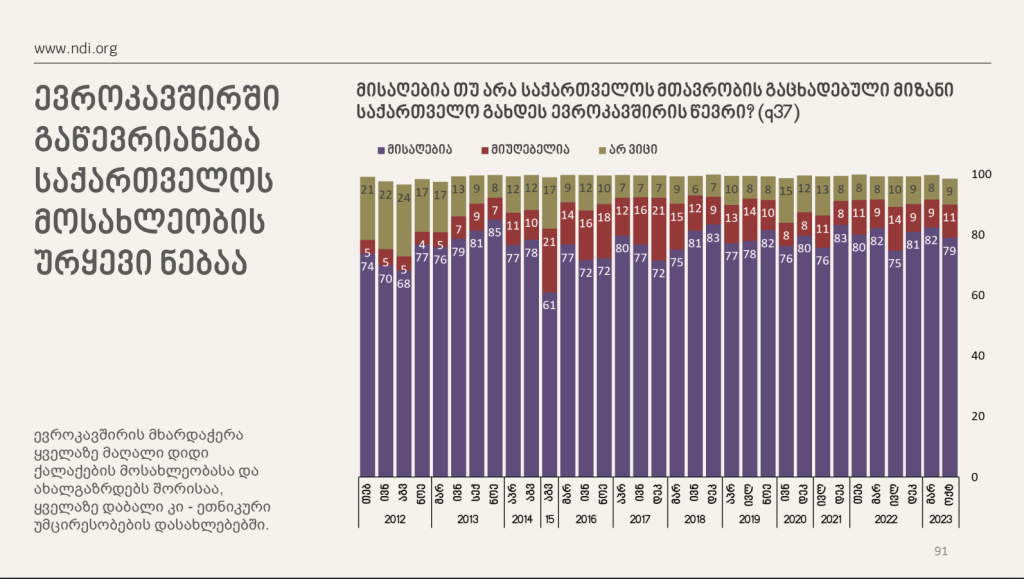
Joining NATO is supported by 67 percent of respondents.
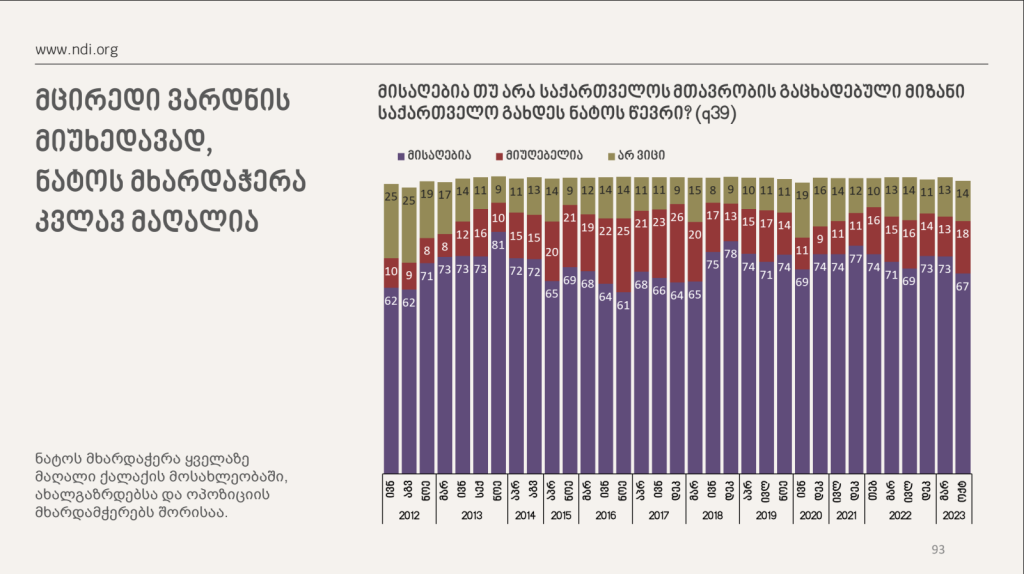
According to a majority, depression and anxiety disorders are a problem, but few people have consulted a psychologist or psychiatrist. Of the 12 percent who thought about it, half had done so, while the other half cited lack of money or need as the reason.
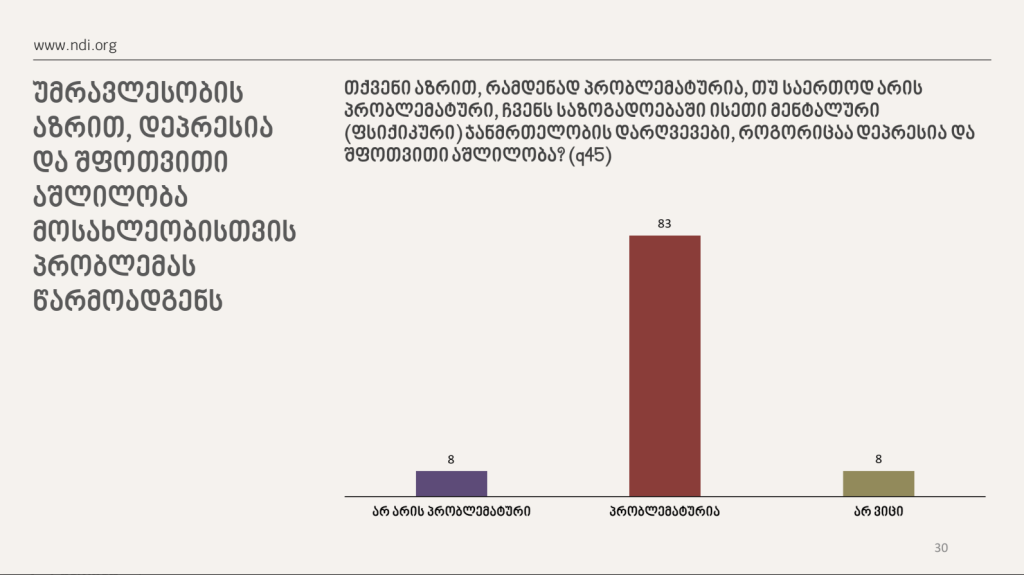
According to the survey, an overwhelming majority of Georgia residents believe that a universal health care program should include mental health services.
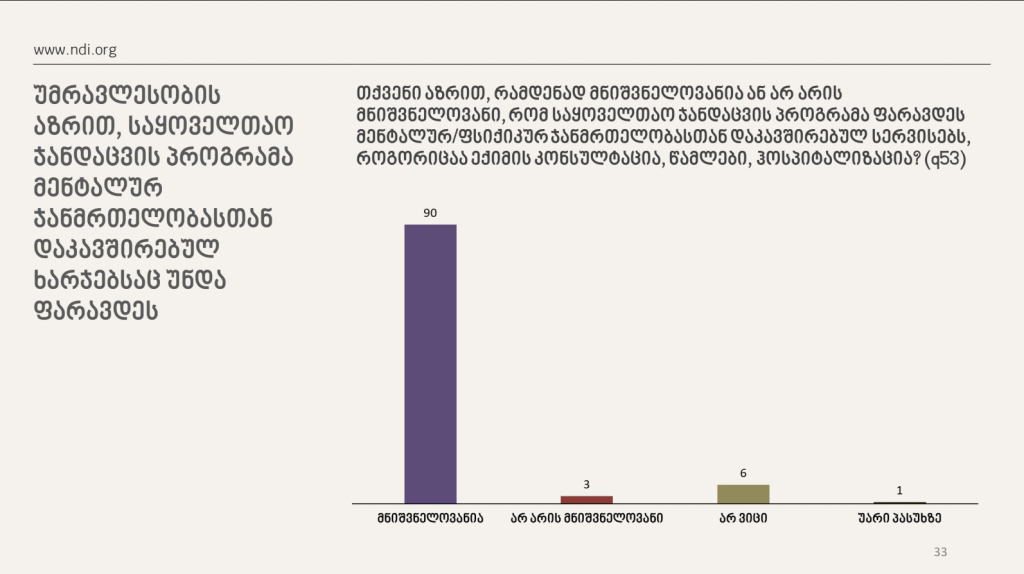
58 percent are unsure if the government can handle economic problems, while 33 percent are confident it can. Nine percent say they don’t know the answer to that question.
According to the survey, the poor quality of education is the biggest problem facing the system. 23 percent of respondents believe the biggest problem facing the education system is the low qualifications of teachers and lecturers, while 22 percent believe it is high university tuition fees.
Compared to other types of settlements, residents of Tbilisi are more critical of the problems in the education system. The difference between men and women is not significant. More and more women consider the cost of education a problem.
62 percent of respondents believe that no political party serves their interests, while 29 percent believe that there is at least one party that represents their interests. Seven percent say they do not know the answer to this question and two percent refused to answer.

When asked, “Which party is close to your views?”, 47 percent named no party, 19 percent named Georgian Dream and four percent named United National Movement. “Other parties” were named by 12 percent of respondents, “don’t know” by six percent and 13 percent refused to answer.
According to a new poll by the National Democratic Institute, 37 percent of the population believe that Georgia is developing in the wrong direction, 33 percent believe it is developing in the right direction, and 25 percent believe that the country is not changing at all. At the same time, the NDI notes that the most critical attitude towards the direction of the country’s development are the residents of Tbilisi, opposition supporters and women.
54 percent of respondents assess the work of the government as good, 38 percent as bad, six percent do not know, and two percent refused to answer.
Compared to a survey conducted in March this year, the positive assessment of the government has increased by 11 percent.










